Gangs put spotlight on Geneva border security
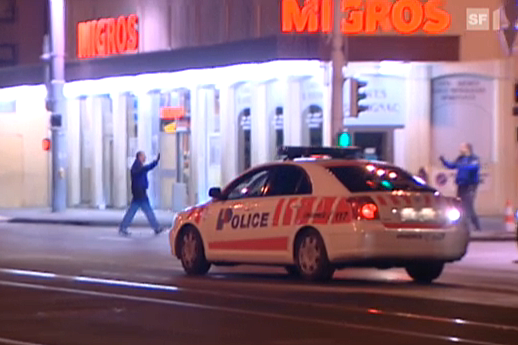
A spate of violent armed robberies in Geneva by French gangs has raised the question of whether the Swiss set aside sufficient resources to police their borders.
The Swiss government recently announced the recruitment of additional border guards for Geneva for the next two years. But the border guards union and certain politicians say the numbers are inadequate to deal with cross-border crime.
Geneva, alongside Basel, is a hotspot for cross-border crime, admits Jürg Noth, head of the Swiss border guards.
“The recent extremely violent armed attacks in the Geneva region face us with a major challenge,” Noth told reporters in Geneva on Tuesday.
The region has witnessed a series of armed attacks by criminals allegedly crossing into Switzerland from Lyon, Grenoble and other parts of the Rhône- Alpes region immediately over the border in France.
In November 2010 a gang carried out a spectacular attack on a Migros Bank in Thônex using machine guns and explosives. A similar hold-up was reported in December in Collonge-Bellerive.
Understaffed
The security situation is seen as particularly delicate given the chronic border guard understaffing problems in Geneva over the past few years.
In response to lobbying and pressure, Swiss Finance Minister Eveline Widmer-Schlumpf gave the green light last week for the recruitment of 24 additional guards. They will follow 24 new guards who started their training in January, which should swell the ranks to 340 by 2013.
But for the border guard union, Garanto, although this measure “goes in the right direction”, it is not enough.
It says 200 additional guards are needed, 60 of them for the Geneva region.
“The government does not take seriously proposals made in parliament and ignores motions that were accepted,” Garanto Central Secretary André Eicher told swissinfo.ch.
The union is supported by Maria Roth-Bernasconi, a Social Democrat parliamentarian from Geneva and Hans Fehr, a Swiss People’s Party politician from Zurich, who filed motions calling for additional resources.
Budget constraints
The government meanwhile says it will “continue to deal with requests for posts in a restrictive fashion” due to budgetary constraints.
Rudolf Dietrich, head of the Customs Office, defended his superiors
“It’s not for me to put pressure on the government,” he told the journalists. “When the cabinet makes available 4,500 staff [working for the Federal Customs Office] that cost SFr450 million ($469 million) I can’t go every day crying that I don’t have enough resources. I need to work with what I’ve got and improve training.”
Dietrich added that Geneva had not been forgotten.
“There are more border guards in the region than ten years ago,” he noted.
Of the 300 currently available, 124 are deployed at Geneva airport carrying out controls on passengers crossing the external Schengen border.
Since December 12, 2008 when Switzerland joined the Schengen zone, systematic border checks on individuals coming into Switzerland from Schengen countries were abolished and cooperation was increased in the fight against cross-border crime.
Naive, rich Swiss
A recent “Temps Present” documentary by the Swiss national television channel TSR highlighted problems created by Lyon-based gangs operating in French-speaking Switzerland.
“Switzerland’s like a wonderland; there is everything and less security than in France. The Swiss are naive and everyone is rich,” a gang member told the programme.
The documentary claimed that the deployment of border guards at the airport had caused a serious shortfall among mobile border patrols in the region.
“We no longer dare go in if we don’t have reinforcements; you can’t fight those gangs,” a border guard recounted anonymously.
Claude Meylan, the commander in charge of Geneva border guards, admitted the figure of seven mobile border guards on duty at night cited by the programme was correct.
“But that was for 2008-2009; today we have 10 to 17 colleagues in 5-6 patrols,” he claimed.
For Isabel Rochat, head of the police department in the Geneva cantonal government, the best response for dealing with these criminals involves closer cooperation with French colleagues.
“In 2010 several crimes were prevented thanks to the exchange of information. Such collaboration allows us to anticipate attacks and track networks,” she told Le Temps newspaper.
Our problem is that we idealise the past, said Olivier Guéniat, head of the Neuchâtel judiciary police force.
“Not all border posts used to be guarded [before Schengen],” he told Temps Present. “Criminals used to cross the border and there were quite a few hold-ups in Zurich, Geneva and Neuchâtel with mafias from Corsica, Marseille or Lyon. We never had an Israeli or US-Mexican style border.”
“Switzerland is a huge sieve and the moment police or border guards are no longer visible people seem to feel traumatised, frightened and frustrated. In the past criminals never stopped at the borders – it’s absurd to say or imagine that they did.”
The Swiss border guards are the armed service of the Federal Customs Administration, a department of the finance ministry.
There are approximately 2,000 border guards, including 154 women. They work at 91 fixed locations and in 35 mobile units along Switzerland’s 1,881 kilometres of borders.
Their main tasks are fighting illegal immigration, cross-border crime and contraband, but they also deal with counterfeiting and the smuggling of weapons, plants and animals.
Approximately 350,000 vehicles or 490,000 people (including 57,000 cross-border workers) cross the border in canton Geneva on a daily basis.
In 2010 the Geneva police reported 13 hold-ups at Geneva petrol stations, compared with 18 in 2009, and 12 in 2008. In most cases the criminals fled into France, which has a 100 kilometre border with Geneva and 46 crossing points, many of which are unmanned.
The Schengen Area comprises 25 countries, most of which are members of the EU, as well as three member countries of the European Free Trade Association – Iceland, Norway and Switzerland.
Britain and Ireland are not in the zone, but they have signed up to agreements on security.
Swiss voters approved police and asylum cooperation, known as Schengen/Dublin accords, in a nationwide ballot in 2005.
Switzerland completed its entry into the Schengen area in March 2009, when it scrapped airport passport controls.
A key element of the Schengen agreement is the Schengen Information Service (SIS), which enables police in any Schengen state to find out whether a suspect has been involved in any kind of crime across the EU.
The Schengen treaty takes its name from a town in Luxembourg where it was signed by Germany, France and the Benelux states in 1985.

In compliance with the JTI standards
More: SWI swissinfo.ch certified by the Journalism Trust Initiative

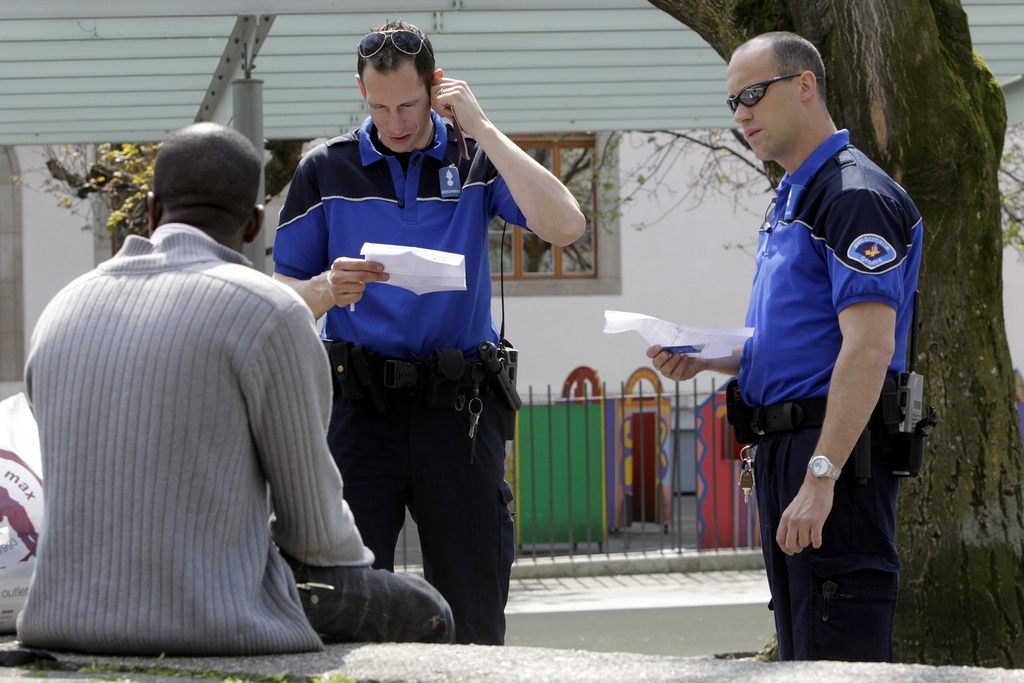
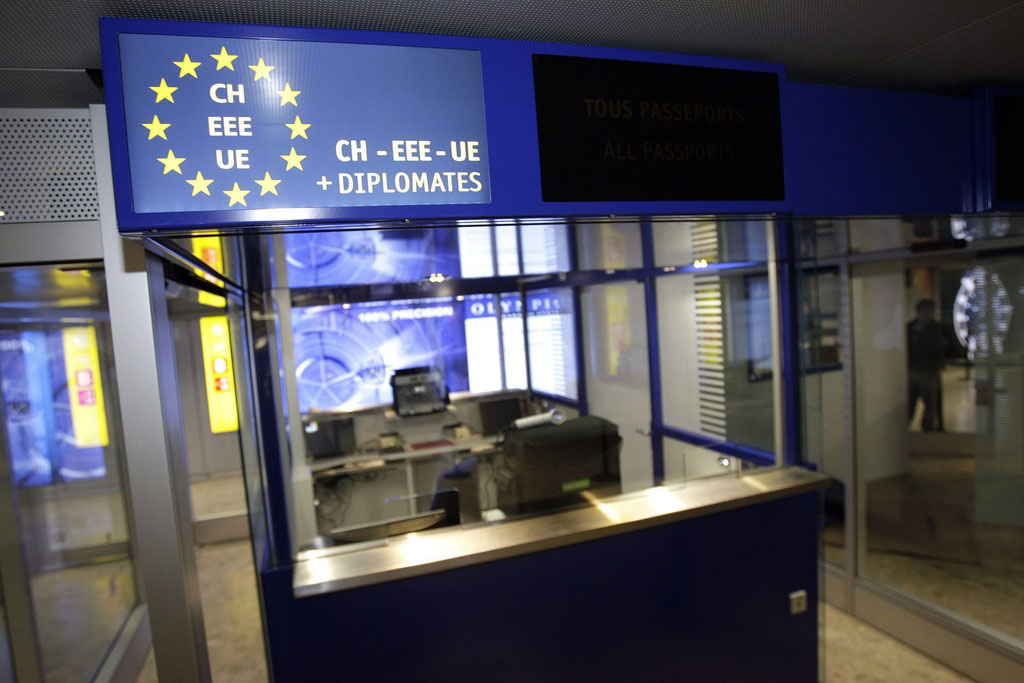
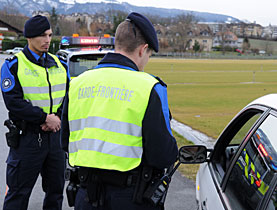
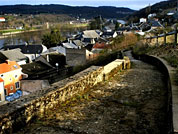
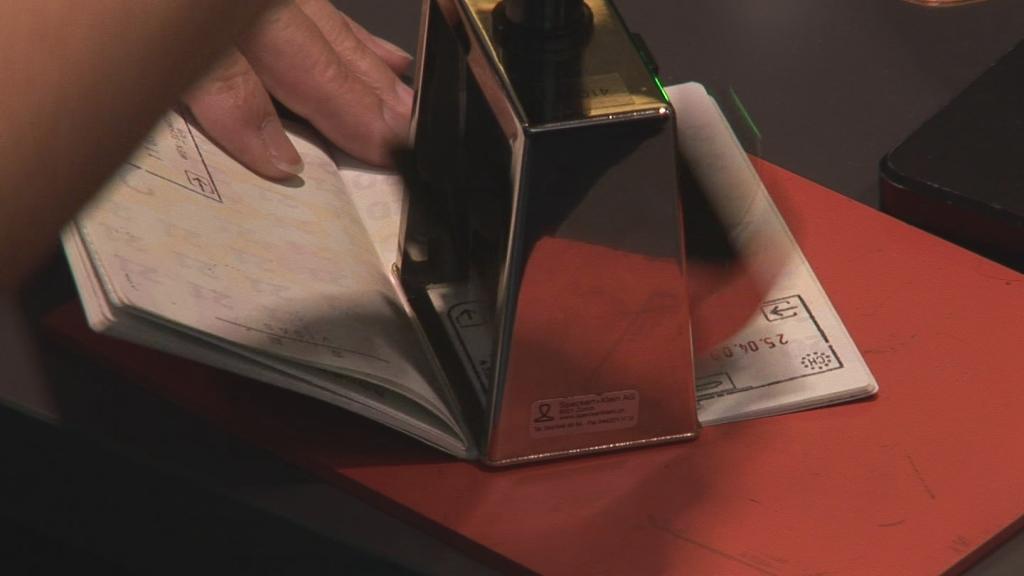
You can find an overview of ongoing debates with our journalists here. Please join us!
If you want to start a conversation about a topic raised in this article or want to report factual errors, email us at english@swissinfo.ch.